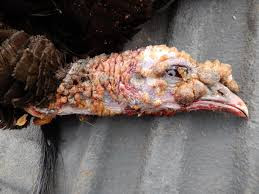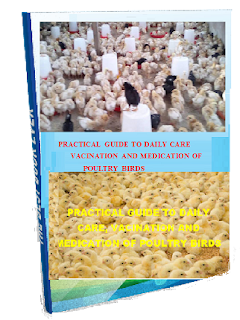Infections and Pests with Raising Turkeys
Zit in Raising Turkeys
Turkeys are really strong however they do get sicknesses occasionally. One such malady is FOWL POX or histomoniasis, a parasite that lives in night crawlers that have eaten caecal worms from poultry droppings containing the parasite.
You will know when your turkeys have pimple when you see splendid yellow droppings around. Different indications of zit are sagging quality, the runs and weight reduction. On the off chance that zit goes untreated your turkeys will kick the bucket.
Counteractive action is constantly superior to cure, and one method for averting zit is to leave a field that you have had turkeys on to rest for no less than a year prior to you return them on that land. On the off chance that you have been running chickens on that land and you need to take after with turkeys, you would be best to hold up to 3 years before doing as such. Long circumstances, I know, however practicing tolerance is superior to losing your run.
By holding up this period you are then sufficiently giving time to go to break the cycle of the parasites and consequently guaranteeing that you don't re-taint your stock.
Coccidiosis in Raising Turkeys
Like chickens, turkeys additionally get coccidiosis. Once more, cleanliness when raising turkeys is the key in eliminating the odds of getting this deadly poultry malady.
Lice in Raising Turkeys
Turkeys get lice, much the same as chickens. Subsequently ensure that you treat them routinely with a lice powder that is reasonable for raising natural turkeys.
Tips for Raising Healthy Turkeys
With a specific end goal to raise solid turkeys you have to give them a probiotic and Vitamin B. Both of these can be found in natively constructed yogurt or financially purchased yogurt that contains live societies.
For 24 turkey poults give them 1/2 glass (120ml) of yogurt blended through 1 quart (1 liter) of starter disintegrates. Bolster this to your poults before anything else before nourishing them whatever else. When they have eaten this refill the feeder with plain disintegrates for whatever remains of the day. In the event that you need to keep down inside parasites it is likewise worth hacking up a few cloves of garlic and adding it to the yogurt squash no less than twice every week.
For raising youthful poults you can encourage them on custom made dark colored bread absorbed drain, or harsh drain with a dash of red pepper. This will give them an astounding begin. At the point when your poults achieve 4-5 weeks of age they will require more care, particularly the females. Give them beaten crude eggs in some drain for extra protein. When they pass this stamp you will see quick development in your turkeys.
Try not to let your turkey poults out of their home on the off chance that it is down-pouring or there has been an overwhelming morning dew. Give the grass a chance to be altogether dry, else they could come down with bug. Keep them far from the wet until the point when they are no less than 7-8 pounds.
Butchering Turkeys for Meat
Turkeys incubated in June, ought to be prepared for butcher for Christmas and Thanksgiving at 20 – 25 pounds. In any case, that implies despite everything you need to get it first before you can eat it! Getting turkeys are not that simple. Their wings are staggeringly solid and can do a great deal of harm on the off chance that they are not appropriately contained.
So stay away from wounds from solid wings and scratches from deadly paws by moving toward your turkey with alert! The best time to get a turkey is the point at which they have been crowded into the animal dwellingplace and it is dim. Bring an associate with you who can hold the light while you snatch the turkey with one leg in each hand and rapidly moving the two legs into one hand while you catch the wings together as fast as could be allowed.
Turkeys for meat are prepared for butcher at 24-28 weeks for standard breeds and 16-20 weeks for wide breasted breeds. At the point when your turkey measures 20 pounds, not the majority of that weight will wind up as meat. When you have dressed your turkey it will just measure 80% of that.
We advocate raising turkeys naturally to give you the best quality meat accessible.
Do you have anything that you would like to add after reading this page? We would love to hear your thoughts. If you can add additional information to what has been written here you will be adding value to the website! No need to have any special skills - just type and submit. We will do the rest!



Comments
Post a Comment